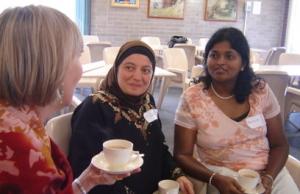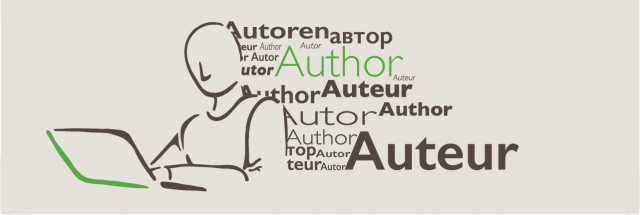From Sudan to Sydney, women are addressing the underlying issues of division and dysfunction in families and communities. Jean Brown, an international coordinator of Creators of Peace International, writes:
 'I shall not keep quiet,' spoken with the intense authority of a woman who has found her voice for the first time. 'The negative feelings I have had about life have changed, sharing with trust removes so much bitterness – this is the beginning. I shall not keep quiet about what I have learned here.' The words of this Kenyan village school teacher were echoed by others confronting issues of tribalism and religious prejudice, family abuse and political instability. Just prior to the carnage that followed the 2007 elections, these women at a Creators of Peace workshop were identifying the underlying dysfunction of their country and their part in its cause and possible cure. Felicita, from the other end of the small town, spoke of how she had warned her children never to marry from another tribe, to be very careful. Suddenly she saw that she was part of the problem in the country, sowing the seeds of mistrust and fear. She called her now adult children together and apologized for passing on these prejudices. Another younger woman, whose family had been displaced through earlier tribal clashes, chose to forgive and befriend people from the other tribe. She then took a further step, apologizing to some for her antagonism and rumour spreading. Now more than ever they see the relevance of what they are discovering and deciding. Creators of Peace, a programme of Initiatives of Change, is a network of concerned women, born from the conviction of Tanzanian politician, Anna Abdallah Msekwa, who saw in the basic approach of IofC a way to empower women at the grass roots to be part of community peace building. Launched in 1991, it has drawn women together from around the world in several major conferences and now also through gatherings known as 'Creators of Peace Circles'. Two women in Lebanon, inspired by Creators of Peace (CoP), formed a Shia/Christian women's movement called 'Linaltaki', where women meet across the religious divides, based on the sharing of personal experience. In Rwanda, Didacienne Mukahabeshimana and Mathilde Kayitesi, after returning home from a CoP conference in Uganda, started UMUHUZA, an NGO doing critical work in post-genocide rehabilitation. Creators of Peace Circles are active in several countries. Small groups of women commit to meet regularly over a period of weeks or months to work through a series of 'gathering points' focused on the nature of peace, good listening, inner peace, forgiveness and so on. They are primarily about changing relationships; within families, between communities. These Circles challenge women to:
'I shall not keep quiet,' spoken with the intense authority of a woman who has found her voice for the first time. 'The negative feelings I have had about life have changed, sharing with trust removes so much bitterness – this is the beginning. I shall not keep quiet about what I have learned here.' The words of this Kenyan village school teacher were echoed by others confronting issues of tribalism and religious prejudice, family abuse and political instability. Just prior to the carnage that followed the 2007 elections, these women at a Creators of Peace workshop were identifying the underlying dysfunction of their country and their part in its cause and possible cure. Felicita, from the other end of the small town, spoke of how she had warned her children never to marry from another tribe, to be very careful. Suddenly she saw that she was part of the problem in the country, sowing the seeds of mistrust and fear. She called her now adult children together and apologized for passing on these prejudices. Another younger woman, whose family had been displaced through earlier tribal clashes, chose to forgive and befriend people from the other tribe. She then took a further step, apologizing to some for her antagonism and rumour spreading. Now more than ever they see the relevance of what they are discovering and deciding. Creators of Peace, a programme of Initiatives of Change, is a network of concerned women, born from the conviction of Tanzanian politician, Anna Abdallah Msekwa, who saw in the basic approach of IofC a way to empower women at the grass roots to be part of community peace building. Launched in 1991, it has drawn women together from around the world in several major conferences and now also through gatherings known as 'Creators of Peace Circles'. Two women in Lebanon, inspired by Creators of Peace (CoP), formed a Shia/Christian women's movement called 'Linaltaki', where women meet across the religious divides, based on the sharing of personal experience. In Rwanda, Didacienne Mukahabeshimana and Mathilde Kayitesi, after returning home from a CoP conference in Uganda, started UMUHUZA, an NGO doing critical work in post-genocide rehabilitation. Creators of Peace Circles are active in several countries. Small groups of women commit to meet regularly over a period of weeks or months to work through a series of 'gathering points' focused on the nature of peace, good listening, inner peace, forgiveness and so on. They are primarily about changing relationships; within families, between communities. These Circles challenge women to:
- Share responsibility for their part in the perpetration of conflict and in its resolution
- Engage in the creation of peace at every level of society
- Break the chains of hate and revenge
- Build networks of forgiveness and friendship across racial, religious and social divides.
In Sydney, Australia, a traditional divide is between the 'North Shore' establishment set and the newer migrant areas to the south of the harbour. In the last couple of years more than 20 peace circles have taken place throughout Sydney and this is one divide being bridged. Arabic is the second most widely spoken language in Sydney, and the Lebanese community one of the largest. Having befriended two Lebanese Muslim women, Peace Circle facilitator Rosemary Thwaites invited them to meet with women in the affluent, leafy suburbs of the North Shore. The depth of honest sharing over the weeks of the Circle created such a bond that the women from the North Shore ventured on return visits into the heart of the Lebanese community in the south. One of the Lebanese women speaks publicly of the change that the Peace Circle experience brought to her life. Australian Peace Circle facilitator Jane Mills writes about the 'tall, beautiful Rwandan lady' in the first Peace Circle she joined. One week the woman wanted to share an experience she had had the previous week. She had been called to Villawood (Sydney's detention centre for asylum seekers) to translate for a fellow Rwandan. She did not recognize the woman's name, but when she saw her, she was sure she knew her. On returning home, the woman's real name came to her mind and she rang the detention centre and asked her, 'Is ……. your real surname?' If the answer was 'yes', then she would know that this woman's father was the killer of her father. 'Yes, that is my real surname,' the detainee replied, 'but my siblings and I changed our name because our father killed so many people and we are ashamed. I thought that, if you knew my real name, you would never help me.' And our friend told us that, with the strength she had drawn from our Peace Circle, she was able to reply, 'I will help you'. Rosemary Kariuki from Kenya, now working in police-refugee liaison in Sydney, is exuberant about Peace Circles. She says, 'They have changed my life.' After her first Peace Circle, she organized an African women's dinner dance to reach out to the many African refugees who are nervous about leaving home in this new and strange country – 500 came and it was such a success that it has become an annual event. Increasingly across the world, cities are wonderful amalgams of races, cultures and religions. Unfortunately, said one young Sudanese refugee, we brought our war with us. Part of the focus of the Creators of Peace Circles is to identify and address some of those unhealed and unresolved issues of pain and prejudice that lie under the surface of so many communities. Each woman also gets the chance to share her life story and the significant turning points that have brought her to who she is today. This was transformative for one Southern Sudanese woman in Khartoum in 2007, when a Creators of Peace (CoP) team was officially invited to conduct a series of workshops for academics, peace activists and politicians. She had never before sat with Muslim women from the north. 'I always thought we were the only ones who had suffered,' she exclaimed. In Juba, a former deputy governor from a southern province overcame her bitterness and returned with the CoP team to Khartoum after an 18 year gap. 'We have worked on peace but not on change,' she said. Peace educators at the workshop decided to incorporate into their own work the role of personal introspection and the spiritual dimension that the Peace Circles introduce. Creators of Peace Circles are also operating in South Africa, the USA, UK, India and Colombia. There are currently invitations to introduce them in eight other countries. An educator from Dafur has asked for a Creators of Peace team to return to Sudan to give training for trainers to women from Dafur, as part of their work to rehabilitate women from the Internally Displaced People's camps. A Russian NGO has asked for help with women and children affected by the Chechen conflict. The next international conference of Creators of Peace will be held in Sydney at the end of 2009. More information on Creators of Peace

Secretary of Creators of Peace, Clementine Lue Clark from Jamaica and USA, pictured here (2nd from left) with Jean Brown (far right) and the Creators of Peace in Sudan, at the River Nile.
|
Secretary of Creators of Peace, Clementine Lue Clark from Jamaica and USA has a MA in Coexistence and Conflict. Clementine writes: My conviction for CoP comes at a time in my life when I'm searching for 'my right place' as a professional in this world of peacebuilding. There are many options, but few that fill the needs of the heart as well as the head in the way CoP does. The use of my academic skills, my past experience with Initiatives of Change and knowledge of the international field of Peacebuilding can be beneficial in this time of programme development for CoP. I have experienced first hand the impact of the CoP Circles model in the North and South Sudan context. We've now had a Circle here in Boston. It surely is a powerful model that can impact the women in Sudan as well as the USA. Download this story as a PDF


